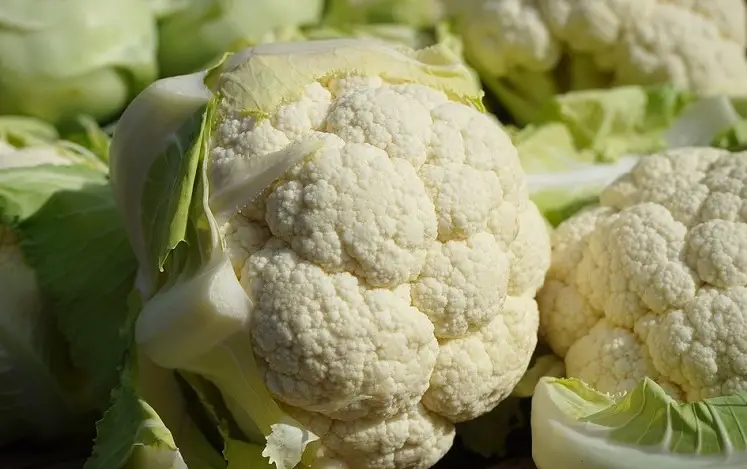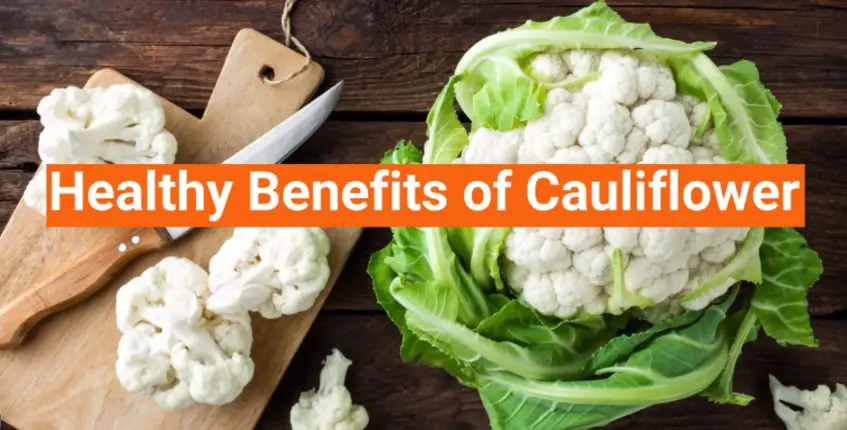When left alone to graze, local horses often feed on grass and hay, but these are meals with minimal nutritional value to the horses – they are only for maintenance. You can provide them with fruits and vegetables to manage the nutrients they consume. But the question to answer at this moment is can horses eat cauliflower? The direct answer to that is no.
How so? Not that cauliflower contains some toxin or is in itself unhealthy – far from it. On the contrary, cauliflower is naturally rich in fiber and vitamins in the B category. We will visit a few health benefits of the vegetable later. But if cauliflower is so valuable, why is it inappropriate for your horses?
Horses are animals with a pretty sensitive gut. The issue lies in the resultant high amounts of gas in the abdomen of your horses due to the presence of raffinose (a type of sugar) in cauliflower and cabbages generally. A bloated abdomen may prevent your horses from eating, an action they carry out often, leading to other negative impacts when they can’t eat.
In this article, we will look into the health benefits of cauliflower and some amazing facts about vegetables. Since we have opined that it may not be the best option for feeding your horses, we will also discuss its risk health factors for our equine pets.
Amazing facts about cauliflower
Below, you’ll find the history, agriculture, and composition of cauliflower:

- Cauliflower originated from Cyprus and was considered the “most pleasant-tasted” of all the varieties of cabbage.
- In the early 18th century, cauliflower was the passion of the court of Louis XIV. It was included for elegant and rich dishes. Mark Twain was known to have said, “a cauliflower is nothing but a cabbage with a college education.” For the record, though, he started that quote with “Training is everything.”
- The word “cauliflower” is coined from two Latin words, which mean “cabbage flower.”
- Cauliflower is an annual plant and reproduces by seed
- At maturity, the vegetable is about 1.5 feet tall.
- Perhaps you’re thinking of cultivating the vegetable, but before setting out, you should know cauliflower is a sensitive plant to weather and temperature, making it a bit difficult to cultivate. To thrive, cauliflower requires a consistent temperature of around 60 o
- At least 6 hours of sunlight is required for optimum growth. The soil? It must be well fertilized to ensure it retains moisture; otherwise, the curd may separate into smaller heads.
- Cauliflower is susceptible to pests, such as bugs, aphids, etc. It is noteworthy that cauliflower must be in a continual state of growth lest you ruin the eventual outcome. Little wonder its cultivation is often left to commercial growers.
- You’ll be amazed that diverse forms of cauliflower exist – in colors, including purple, green, orange, brown, and white cauliflower. The white form is commercially the most common.
- Cauliflower is highly nutritious and may be fried, boiled, roasted, raw, pickled, or steamed.
- 5 ounces of cauliflower contains 25 calories
- Cauliflower is a rich source of vitamin B6, vitamin C, vitamin K, and pantothenic acid. It is a great source of antioxidants and immune-strengthening nutrients. The purple and orange cauliflower has more antioxidant properties than the regular white cauliflower. The antioxidant anthocyanin gives the purple cauliflower its purple pigment.
- In some areas, cauliflower is used as a supplement for rice. Folks who have alternated to riced cauliflower have diverse reasons, a major one being the contamination of rice fields caused by the organic arsenic seeping into groundwater from careless use of industrial technology.
Health Benefits of Cauliflower

- Regular consumption of cauliflower is associated with improved systemic circulation, helping to maintain the proper functioning of blood vessels. How so? A content of cauliflower activates anti-inflammatory actions that ultimately prevent lipid accumulation in the blood vessels.
- Due to the presence of dietary fiber, cauliflower is good for aiding the digestive properties of the gastrointestinal tract. It also promotes toxin elimination from the system.
- Cauliflower is a rich source of vitamin C, which aids in better absorption of iron in the blood. This is vital as iron is required to produce hemoglobin in the blood; the blood uses hemoglobin to convey oxygen to body tissues.
Vitamin C also plays a vital role in the production of collagen, which protects bones from inflammatory damage. If stretched further, vitamin C is associated with reducing the risk of diabetes.
- Cauliflower is low on calories; hence, it is appropriate for maintaining weight.
Since our subject is the healthiness of feeding your horses with cauliflower, and we have answered the question in the negative; here are some of the health risks associated with your horses feeding on cauliflower:
Health Risks Associated With Feeding Cauliflower to your horses
- Gastrointestinal irritation
- Reduced feed intake and growth
- Anemia
- Hepatic cysts
- Goiter
- Renal lesions
In Conclusion
Cauliflower is not suitable enough as food for your horses. We have explained that cauliflower is not the issue but the sensitive digestive system of horses, which could easily cause discomfort in their abdomens. You can feed them in little quantities, but it’s only advisable to avoid them altogether since you can’t particularly tell when you’ve fed them too much of the vegetable. Another fine option is to carry your veterinary doctor along.
